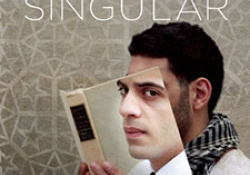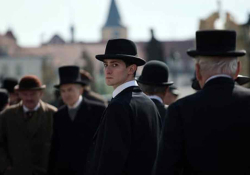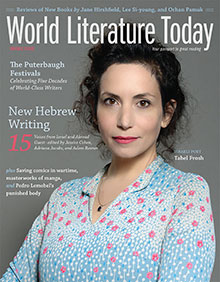Prose, Poetry, and the Heresy of Normalcy: New Voices in Contemporary Hebrew Literature
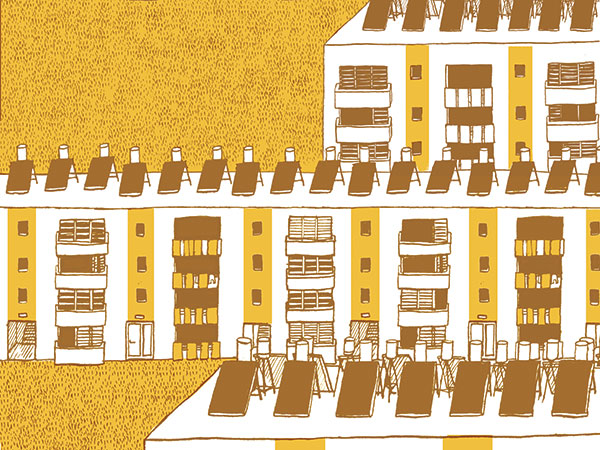
Modern Hebrew literature was still a new phenomenon a century ago. Its authors were mostly confined to a few cities in czarist Russia and scattered throughout the Austro-Hungarian Empire. Hebrew’s literary pioneers were typically polyglot intellectuals, wanderers by force or by choice, committed to writing in a revived language that few could read and that often lacked words to describe the conditions of modernity. Likewise, Hebrew literature of the late nineteenth and early twentieth centuries possessed no national borders, and writers of Hebrew drew sustenance from the languages and national literatures surrounding them and from the practices of translation that enriched their own vocabulary. Hebrew poetry and prose may have initially developed as a diasporic literature subject to the prevailing trends of majority cultures, but they were also aligned with a clear ideological program: the Jewish return to the biblical land of Israel, a foreign land imagined as home. Hebrew literature, as one of its foremost practitioners, Yosef Haim Brenner, famously proclaimed, was a literature born “against all odds.”
In the twenty-first century, Hebrew literature continues to be shaped by multilingual and multicultural encounters both within and outside of Israel. Translation remains a crucial way by which Hebrew readers engage with contemporary literature from around the world, and Hebrew literature itself is translated into numerous languages. Writers of Hebrew have also recovered, or rediscovered, the power that can be harnessed from a polyglot background. Arabic, English, French, or Russian, rather than Hebrew, is the mother tongue of some of its authors. Over the last decade, a significant number of Israeli authors, including Maya Arad, who appears in this feature, and recent Sapir Prize–winner Ruby Namdar, have elected to settle, work, and write outside of Israel’s borders, primarily in North America and Europe.
Translated Hebrew literature possesses a cultural function for the majority of its readership that far outstrips a casual interest in a given text’s narrative, linguistic expression, or vision of the world.
Nevertheless, the readership for Hebrew literature, in the original and in translation, remains limited. What kind of audience exists for Hebrew literature in translation? In America at least, we may assume a primary Jewish readership that seeks to better understand Israel, a secondary audience made up of readers particularly attentive to the fraught politics of the Middle East, and a tertiary audience that includes avid readers of world literature more broadly. Translated Hebrew literature possesses a cultural function for the majority of its readership that far outstrips a casual interest in a given text’s narrative, linguistic expression, or vision of the world. Given a presumed readership that comprises mainly diaspora Jews and those passionate about the Middle East, Hebrew literature that does not represent a recognizable Israeli sociopolitical reality, and that does not even obliquely treat the Arab-Israeli conflict, rarely finds its way into translation.
Indeed, only Hebrew literature that grapples with the soul of Israel, depicts the triumphs and tragedy of the Jewish fate in the mid-twentieth century, or engages with the matzav, the political “situation,” manages to find a readership in North America. This has favored the works of (male) novelists such as Aharon Appelfeld, David Grossman, Amos Oz, and A. B. Yehoshua. The popularity of Etgar Keret’s short stories stands as a notable exception. The demand that Hebrew literature wrestle with Israeli politics has likewise framed the reception of familiar poets such as Yehuda Amichai and Dahlia Ravikovitch, but the availability of Hebrew poetry in English translation is further constrained by a literary economy that favors prose over poetry, leaving very little room for other literary voices and concerns. The resistance to nonpolitically engaged works in translation exposes a widespread refusal to accept the universal aspects of Israeli culture as well as a reluctance to embrace the rich variety of genres—detective fiction, digital poetry, microfiction, science fiction, and fantasy—present in contemporary Hebrew literature. Hebrew works that do not fixate on the matzav commit what we might call the heresy of normalcy, by expressing what Hebrew poet Leah Goldberg referred to as “the courage of the ordinary.”
The prose section of this feature keeps at least one eye on the heretical. Editors Jessica Cohen and Adam Rovner aim to highlight what is universal in the particular expressions of Hebrew culture they have chosen, with the anticipation that these texts will reach readers who do not want the diversity of contemporary literary forms and voices to be overwhelmed by the claims of the political. The selected texts showcase either a formal inventiveness or a thematic focus on the art of narrative itself—in some cases, both simultaneously. Most of the talented authors included in this issue are unknown in the US, and none have been published in print in English to the best of our knowledge. And in stubborn disregard of what many readers expect from Hebrew literature, we have curated work that upsets notions of what Arab and Israeli identities can mean. In the pages that follow, readers will meet with the sly wit of Maya Arad’s “Master of the Short Story” and recognize a debt to sharply observed British social comedies. They will find themselves challenged by Yiftach Ashkenazi’s “Screw You, Zamenhof,” which owes more to the influence of the French OuLiPo and the American Fiction Collective than to the tradition of modern Hebrew letters. Almog Behar’s quasi-autobiographical “Alas, Baghdad Sits Solitary,” translated by Lisa Katz, alludes to Arabic poetry and the Hebrew Bible in its depiction of the musings of a self-described Arab Jew. Roy Chen’s “The Mosquito” indulges in a metafictional fantasy that reveals traces of Russian and Eastern European absurdism. The extraordinary genre-bending work of Tomer Gardi confronts the competing claims of Israelis and Palestinians and provokes readers to consider how we make sense of history. Dinah Assouline Stillman’s interview with writer Ronit Matalon reveals the family origins of the celebrated author’s creativity and provides a glimpse into the social context of the lives of Jewish refugees from Arab lands. Beneath the eerily placid first-person-plural narration of Yael Neeman’s “Reader’s Reports” lurks a powerful meditation on gender and power. Daniel Oz’s memorable “flash fables” demonstrate the author’s preoccupation with literary form and carry into Hebrew many of the hallmarks of Latin American microfiction. The brief dialogue comprising Raveh Sagie’s “Book Week,” translated by Daniella Zamir, would not be out of place in the latest issue of McSweeney’s. And Ayman Sikseck’s portrait of the Arab-Israeli artist as young Hebrew writer in To Jaffa, translated by Evan Fallenberg, portrays an insider-outsider’s view of a majority culture that evokes some of the same tropes present in the work of diaspora Jewish writers.
Hebrew works that do not fixate on the matzav commit what we might call the heresy of normalcy, by expressing what Hebrew poet Leah Goldberg referred to as “the courage of the ordinary.”
The selections of poetry, curated by Adriana X. Jacobs, don’t claim to be representative of Israel’s current poetry landscape (this would require the inclusion of many more poets), but they do offer a sampler of Israel’s dynamic contemporary poetry scene and also introduce the English-language reader to poetic voices and perspectives that challenge perceptions of what Israeli literature is and should be. The poems of Mei-Tal Nadler, winner of the 2014 Teva Poetry Prize, appear here in Rachel Tzvia Back’s translation. Nadler’s 2014 debut collection, Nisuyim be-chashmal (Experiments in electricity), distorts and defamiliarizes local Israeli culture in ways that are political, lyrical, and alarming. A selection of poems by Yaakov Biton, translated by Yosefa Raz and Shaul Setter, draws from his two collections, Ina Dada (2007) and Machberot ha-tevusah (Notebooks of defeat, 2013). The poetry of Biton, who was raised by his Moroccan-Jewish grandmother, examines the at-times vexed relation between sexuality and ethnic identity as well as the ongoing tension between personal and national narratives in the Israeli context. Alexandra Zelman-Doring’s translations of Saar Yachin devise ingenious solutions for his neologisms and syntactical puzzles. His imagery is spontaneous and playful, while his poems on the whole can be read against the background of Israel’s social and political tensions. Yachin distributes his work through Indiebook, an online publisher and bookseller that champions the work of small presses. Tahel Frosh’s debut collection, Betsa (Avarice, 2014), is one of the most urgent and political books of poetry published in recent years. Frosh’s stunningly crafted poems, which include a number of prose poems, offer a critique of Israel’s free-market economy, the housing crisis, and globalization through the perspective of Israel’s working class (which includes poets).
In Israel, poetic activity and participation have mobilized around economic issues, and a number of poets and writers have turned to independent and digital publishing routes, both as a rejection of the material and hegemonic economy of book publishing in Israel but also as a way to include social activism and protest as an explicit part of their literary project. Author Alex Epstein, whose work has previously been featured in WLT, has been a vocal supporter of digital publishing, even debuting original works on his Facebook page. Poet Ron Dahan, founder of Indiebook, has rejected the idea that poetry “doesn’t sell” by creating an independent market that supports small presses, publications, and experimental literature. Digital publishing and social media have proven to be productive and important platforms for poets who rely on their immediacy to respond quickly to news events and to social and political crises—the PDF anthologies of the Israeli and Palestinian collective Guerrilla Tarbut (Cultural Guerilla) being one example. These same platforms and technologies also connect poets to their readers and critics, and it is not uncommon to find some of the liveliest literary debates and conversations happening online. As Dory Manor explains in the interview included in this issue, the constant online discussion and circulation of poetry moves the genre from the cultural margins toward the center of everyday social networks. After attending a poetry book launch in Tel Aviv last summer, the poet and scholar Shira Stav took to Facebook to marvel at the turnout: “so many people of all colors, all styles, all accents and all ages.” It wasn’t an ordinary poetry reading—it took place in a packed club—but as Stav noted, the audience reflected the rich diversity of the creators and consumers of modern Hebrew literary culture.
The past decade has been productive and transformative for Hebrew literature, both within Israel and abroad. A broad range of formal and aesthetic experimentation in Hebrew poetry and prose reveals how the old-new language of Hebrew continues to absorb literary influences both locally and globally. The contemporary Hebrew literary scene cannot be located in one place or easily categorized, and with that in mind, we offer you the following selections.
Denver, Colorado
Oxford, England
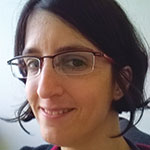 Artist Noa Vichansky (www.noavichansky.com) is an Israeli illustrator specializing in book and magazine illustration. She is influenced mainly by medieval folklore and mythologies. Since graduating from the Bezalel Academy of Arts and Design in Jerusalem, she has been using her unique style to combine physical and digital illustration techniques.
Artist Noa Vichansky (www.noavichansky.com) is an Israeli illustrator specializing in book and magazine illustration. She is influenced mainly by medieval folklore and mythologies. Since graduating from the Bezalel Academy of Arts and Design in Jerusalem, she has been using her unique style to combine physical and digital illustration techniques.



